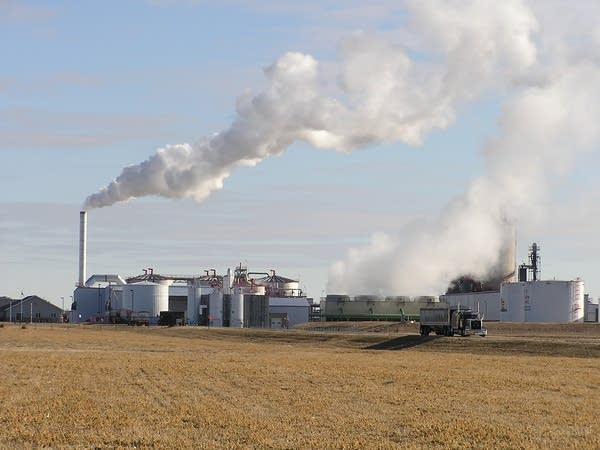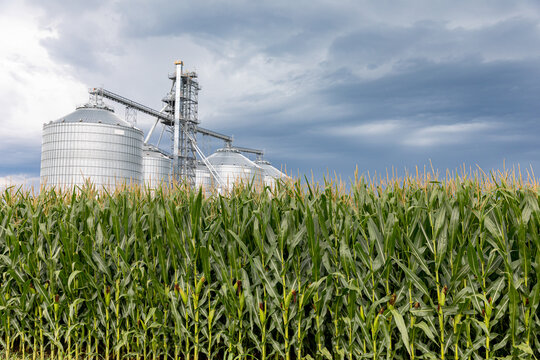
South American countries are currently experiencing biofuels boom driven by several factors. This is including abundant agricultural resources, government support and the growing emphasis on renewable energy. Biofuels in the region contribute to renewable energy sources. This helps reduce greenhouse gas emissions. It helps to improve air quality and reduce dependence on fossil fuels. Countries like Brazil, Colombia and Argentina have massive tracts of fertile land suitable for biofuel. South American governments have implemented policies to promote biofuel production. Such efforts include tax incentives and infrastructure development.
Trends in biofuel production in South America
Biofuel production continues to evolve in response to technological advancements, market dynamics and environmental concerns. These trends are shaping the future of biofuels in the region especially in Brazil, Argentina and Colombia. These countries are the major producers and exporters of biofuel in South America. The following are the main trends in biofuel production in South America.

- Rising biofuel production – the region has abundant resources necessary for biofuel production. It also has domestic consumption and strong export demand. There is diversification of feedstocks for biodiesel production. This helps reduce dependence on a single crop and enhances the sustainability of biodiesel production.
- Development of second-generation biofuels – these are biofuels from non-food feedstocks. This is including agricultural residues and waste materials. These fuels offer the potential for greater environmental benefits and reduced competition with food crops. The countries are also investing in research and development to enhance the scalability of the advanced fuels.
- Increasing export opportunities – most of South American countries are establishing themselves as major biofuel exporters. There are efforts to negotiate trade agreements and reduce tariffs on biofuels to boost exports from the region.
- Integration with the circular economy – the region is experiencing a trend toward integrating biofuel production with the circular economy. Additionally, there is rising interest in producing biogas and bioelectricity from organic waste.
- Technological advancements – availability of technological advancements drive increased efficiency in biofuel production. They include innovations in enzyme technologies, fermentation processes and genetic engineering of feedstocks. The adoption of automation and digital technologies in biofuel production helps to optimize operations and reduce costs.
Impacts of biofuels in the transportation in South America
South America stands to enjoy use of biofuels in the transportation industry. Biofuels contribute to reduced greenhouse gas emissions and increased energy security. This leads to the development of a sustainable transportation sector. The impact of biofuels varies depending on the availability of feedstocks, government policies and level of infrastructure development. Biofuels impact the transportation industry in the following ways.

- Reduction in greenhouse gas emissions – biofuels produce fewer greenhouse gas emissions compared to traditional fuels. This helps South American countries meet their commitments under international agreements like the Paris Agreement.
- Energy security and independence – the fuels provide an alternative to oil and gasoline. This helps to enhance the energy security. Using biofuels in the transportation industry diversifies the region’s energy sources. This helps reduce the vulnerability of the transportation sector due to changes in global oil prices.
- Impact on fuel prices and availability – use of biofuels can help stabilize prices by reducing the dependency on imported oil. Availability of ethanol and biodiesel provides consumers with more fuel options.
- Technological integration and infrastructure development – there is the widespread adoption of flexible-fuel vehicles (FFVs). These vehicles can run on any blend of ethanol and gasoline which has a transformative impact on the industry. They provide consumers with flexibility and have driven the high consumption of ethanol in the country.
- Environmental and social considerations – the use of biofuels contribute to the development of a sustainable transportation system. They have positive social impacts in rural areas by creating jobs, poverty reduction and empowerment of rural communities.
How do the fuels contribute to South America’s energy independence?
Biofuels provide a solution to energy independence by reducing reliance on imported fossil fuels. The fuels also leverage domestic agricultural resources and contribute to the diversification of the energy mix. Biofuels lead to diversification of the energy mix and improve trade benefits. This helps maintain resilience to global energy shocks. Additionally, they contribute to environmental and social benefits and use of domestic resources. The presence of supportive government policies for biofuels helps to enhance the energy security. It also helps with the transition to a more sustainable and independent energy future.